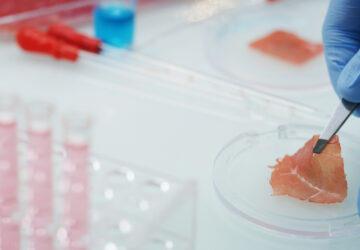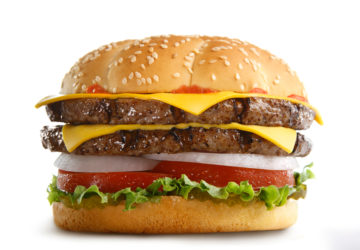The fake meat industry has been working to position itself as part of the solution to climate change, but the science doesn’t back it up.
In a recent op-ed, Bruce Friedrich, CEO of the Good Food Institute and longtime vegan activist, argued that eliminating the meat industry was a “scalable climate solution” and that veggie burgers could “save the world.” But the facts don’t support a claim that diet changes will reduce global greenhouse gas emissions. In fact, good land stewardship in raising livestock can benefit the environment.
American agriculture which is far more productive than farmers in other countries makes up 1.5 percent of global emissions. One study found that convincing 330 million Americans to go vegan would reduce U.S. emissions by 2.6 percent – and an even fraction of global emissions. After all, people need to eat and every food produced has some environmental impact, even an ultra-processed soy patty.
Eliminating meat from our diets is not a world-saving endeavor. In fact, some meat alternatives are actually worse for the environment.
An analysis–ironically done by the Good Food Institute itself–found that lab-grown meat, a trendy alternative that may come to market in the US within a year, would have a higher environmental impact than the production of real chicken and pork. Another study from Oxford found that lab-grown chicken has five times the emissions of real chicken.. Growing meat in bioreactor vats (instead of naturally on a farm) may use less land, but the energy costs are comparatively tremendous.
Even “plant-based” meat alternatives have questionable climate credentials. The production of synthetic chicken nuggets generates the same amount of emissions as real poultry.
Fake meat advocates may concede the point for chicken and pork, but many remain adamant that fake meat is significantly better than real beef. After all, cows release methane, which has 28 times the global warming potential of CO2, right?
The scientific answer is not as simple as advocates want you to think.
According to Dr. Frank Mitloehner, a scientist at the University of California-Davis, methane and carbon dioxide cannot be fairly compared when it comes to global warming potentials. Methane only spends 10 years in the atmosphere whereas carbon dioxide emissions hang around for 1000 years. While CO2 “stocks” up in the atmosphere, methane “flows” and is destroyed relatively quickly–a distinction in warming potential that is now recognized in the latest IPCC report.
Stopping climate change is not as simple as changing a patty on a bun, no matter what the wealthy investors in fake meat companies want you to believe.
But that doesn’t mean there is nothing you can do at the dinner table to reduce emissions.
One recent study found t40 percent of food produced in the United States is wasted. When food is wasted, it ends up in a landfill releasing the very methane that environmentalists are so concerned about.
The longevity of the planet does not depend on whether your burger is beef, chicken, or veggies. Eat what you buy and you are doing your part to reduce emissions.





